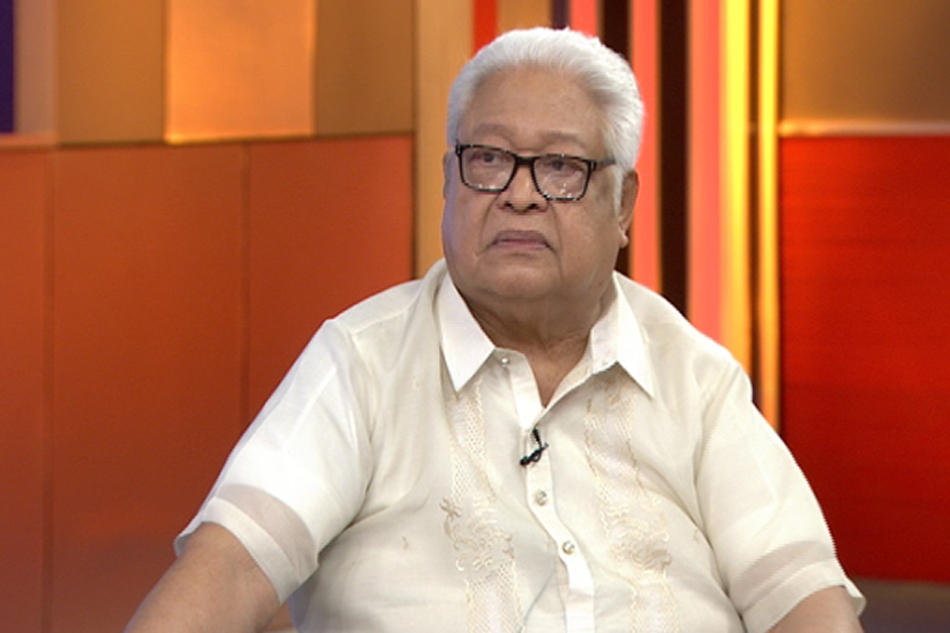Lagman to Speaker: Allow conscience vote on death penalty bill | ABS-CBN
ADVERTISEMENT

Welcome, Kapamilya! We use cookies to improve your browsing experience. Continuing to use this site means you agree to our use of cookies. Tell me more!
Lagman to Speaker: Allow conscience vote on death penalty bill
Lagman to Speaker: Allow conscience vote on death penalty bill
ABS-CBN News
Published Nov 30, 2016 04:40 PM PHT
MANILA – Albay Representative Edcel Lagman on Wednesday urged House Speaker Pantaleon Alvarez to allow a conscience vote on the proposed bill reimposing the death penalty.
MANILA – Albay Representative Edcel Lagman on Wednesday urged House Speaker Pantaleon Alvarez to allow a conscience vote on the proposed bill reimposing the death penalty.
In a statement, Lagman said Alvarez “must liberate members of the majority coalition to advocate differing views and assure free debate on the revival of capital punishment.”
In a statement, Lagman said Alvarez “must liberate members of the majority coalition to advocate differing views and assure free debate on the revival of capital punishment.”
Lagman issued this statement after the substitute bill on the proposal to reimpose the death penalty on heinous crimes hurdled the House Committee on Justice sub-committee on Judicial Reform.
Lagman issued this statement after the substitute bill on the proposal to reimpose the death penalty on heinous crimes hurdled the House Committee on Justice sub-committee on Judicial Reform.
The congressman said the proposed measure is being railroaded, saying the sub-panel’s approval came without the 3-day notice and before other resource persons can present their testimonies for or against the proposal.
The congressman said the proposed measure is being railroaded, saying the sub-panel’s approval came without the 3-day notice and before other resource persons can present their testimonies for or against the proposal.
ADVERTISEMENT
Lagman said the substitute bill was only approved because the ex-officio members outnumbered the regular members in the subcommittee.
Lagman said the substitute bill was only approved because the ex-officio members outnumbered the regular members in the subcommittee.
He also argued that the proponents of the consolidated substitute bill failed to comply with the constitutional requirement of showing compelling reasons for the reimposition of the death penalty.
He also argued that the proponents of the consolidated substitute bill failed to comply with the constitutional requirement of showing compelling reasons for the reimposition of the death penalty.
The heinous crimes covered by the death penalty proposal include drug-related crimes, treason, qualified piracy, qualified bribery, parricide, murder, infanticide, rape, kidnapping and serious illegal detention, robbery with violence against or intimidation of persons, destructive arson, plunder, and carnapping.
The heinous crimes covered by the death penalty proposal include drug-related crimes, treason, qualified piracy, qualified bribery, parricide, murder, infanticide, rape, kidnapping and serious illegal detention, robbery with violence against or intimidation of persons, destructive arson, plunder, and carnapping.
Alvarez and Capiz 2nd District Rep. Fredenil Castro jointly filed two bills, one seeking to reimpose the death penalty for heinous crimes.
In filing the bill seeking to reimpose the death penalty, Alvarez and Castro noted that the "criminal justice system has had to make do with penal laws that are perceived to be less than dissuasive. There is evidently a need to reinvigorate the war against criminality by revising a deterrent coupled by its consistent, persistent and determined implementation."
Alvarez and Capiz 2nd District Rep. Fredenil Castro jointly filed two bills, one seeking to reimpose the death penalty for heinous crimes.
In filing the bill seeking to reimpose the death penalty, Alvarez and Castro noted that the "criminal justice system has had to make do with penal laws that are perceived to be less than dissuasive. There is evidently a need to reinvigorate the war against criminality by revising a deterrent coupled by its consistent, persistent and determined implementation."
"The imposition of the death penalty for heinous crimes and the mode of its implementation, both subjects of repealed laws, are crucial components of an effective dispensation of both reformative and retributive justice," they pointed out.
"The imposition of the death penalty for heinous crimes and the mode of its implementation, both subjects of repealed laws, are crucial components of an effective dispensation of both reformative and retributive justice," they pointed out.
ADVERTISEMENT
ADVERTISEMENT



